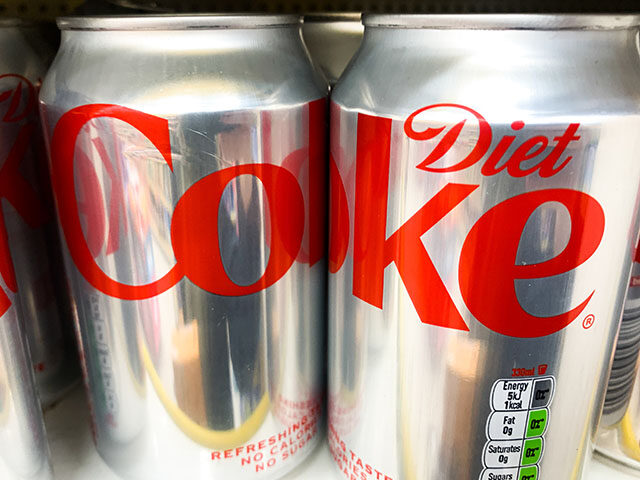Two World Health Organization committees are expected to list Aspartame — an artificial sweetener found in Diet Coke and MARS’ Extra chewing gum — a “possible carcinogen”’ in a joint report next month.
Listing aspartame as a “possible carcinogen” means there is “limited evidence these substances or situations can cause cancer in humans,” Reuters reported.
#Aspartame is set to be declared a carcinogen
Watch out all the Diet Coke guzzlers (guilty)#ArtificialSweeteners https://t.co/8AK2yOQy2u
— Abantika Ghosh (@abantika77) June 29, 2023
The International Agency for Research (IARC) — the (WHO) cancer research arm has three different levels of classification: “possibly carcinogenic to humans”, “probably carcinogenic to humans” and “carcinogenic to humans.” For some perspective, the “radiofrequency electromagnetic fields associated with using mobile phones” are classified as a possible carcinogen.

People use their cell phones to record a speaker in Atlanta, Georgia. (Elijah Nouvelage/Getty Images)
The purpose behind this classification is meant to prompt greater research, but instead it tends to cause confusion among consumers and can bear a heavy burden on manufacturers.
In its determination, the IARC does not factor in how much of the item is safe for consumption. Instead, that assessment will be done by the Joint FAO/WHO Expert Committee on Food Additives (JECFA).
“IARC has assessed the potential carcinogenic effect of aspartame (hazard identification),” an IARC spokesperson told the Guardian. “Following this, the joint FAO/WHO expert committee on food additives will update its risk assessment exercise on aspartame, including the reviewing of the acceptable daily intake and dietary exposure assessment for aspartame. The result of both evaluations will be made available together, on 14 July 2023.”
Since the 1980s, aspartame has been found in products. It’s been deemed safe for consumption by the Food Drug Administration, the ruling body on food safety in the United States.
In its June review, the IARC accessed 1,300 studies on the artificial sweetener.
Since the 2000s, at least a couple studies have been conducted showing a possible link exists between aspartame and cancer.
However, many members in the food industry said this is inappropriate overreach for the World Health Organization.
“IARC is not a food safety body,” Frances Hunt-Wood, the secretary general of the International Sweeteners Association told the Guardian. “Aspartame is one of the most thoroughly researched ingredients in history, with over 90 food safety agencies across the globe declaring it is safe, including the European Food Safety Authority, which conducted the most comprehensive safety evaluation of aspartame to date.”

COMMENTS
Please let us know if you're having issues with commenting.